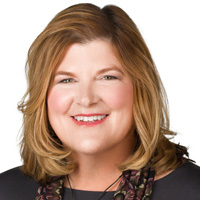Ready for a Career Checkup? Five Steps to Plan What’s Next
Asking yourself some pointed questions to figure out what you want and what you’re good at can bring more purpose and fulfillment to your professional life.


Profit and prosper with the best of Kiplinger's advice on investing, taxes, retirement, personal finance and much more. Delivered daily. Enter your email in the box and click Sign Me Up.
You are now subscribed
Your newsletter sign-up was successful
Want to add more newsletters?

Delivered daily
Kiplinger Today
Profit and prosper with the best of Kiplinger's advice on investing, taxes, retirement, personal finance and much more delivered daily. Smart money moves start here.

Sent five days a week
Kiplinger A Step Ahead
Get practical help to make better financial decisions in your everyday life, from spending to savings on top deals.

Delivered daily
Kiplinger Closing Bell
Get today's biggest financial and investing headlines delivered to your inbox every day the U.S. stock market is open.

Sent twice a week
Kiplinger Adviser Intel
Financial pros across the country share best practices and fresh tactics to preserve and grow your wealth.

Delivered weekly
Kiplinger Tax Tips
Trim your federal and state tax bills with practical tax-planning and tax-cutting strategies.

Sent twice a week
Kiplinger Retirement Tips
Your twice-a-week guide to planning and enjoying a financially secure and richly rewarding retirement

Sent bimonthly.
Kiplinger Adviser Angle
Insights for advisers, wealth managers and other financial professionals.

Sent twice a week
Kiplinger Investing Weekly
Your twice-a-week roundup of promising stocks, funds, companies and industries you should consider, ones you should avoid, and why.

Sent weekly for six weeks
Kiplinger Invest for Retirement
Your step-by-step six-part series on how to invest for retirement, from devising a successful strategy to exactly which investments to choose.
Let’s start with some good news. Despite recent headlines lamenting mass layoffs, rising stress levels, return-to-office politics and the risk of AI-powered automation, the majority of Americans remain satisfied with their jobs.
In fact, job satisfaction last year rose to its highest levels since the late 1980s. According to research from the Conference Board, “U.S. workers have never been more content.” More than 60% of workers are satisfied — up from just 42% during the Great Recession in 2010.
If you’re one of the employees in this happy majority, congratulations on finding fulfilling work and balance. And if you’re in the minority, remember that it’s never too late to pursue a new opportunity or improve the situation at your current employer.
From just $107.88 $24.99 for Kiplinger Personal Finance
Become a smarter, better informed investor. Subscribe from just $107.88 $24.99, plus get up to 4 Special Issues

Sign up for Kiplinger’s Free Newsletters
Profit and prosper with the best of expert advice on investing, taxes, retirement, personal finance and more - straight to your e-mail.
Profit and prosper with the best of expert advice - straight to your e-mail.
No matter where you are on your career journey, an annual “career checkup” is a great way to step back, reflect on your current situation and move forward with confidence and intention.
What is a career checkup?
In the same way you manage your personal health with a yearly physical and your financial health with regular reviews of your investments, a career checkup sets aside dedicated time to evaluate progress in your professional life.
For example:
- How satisfied are you with your current employment?
- Are you on track to reach your career goals?
- Is a new opportunity in your future?
Being proactive keeps your professional life in good health and ensures you’re ready for whatever comes next. Whether it’s time to negotiate a promotion, launch a job search, pursue a board of directors seat or even downshift as retirement nears, you can make sure your next move is thoughtful rather than reactionary.
Plan your next career move with these five steps
Here’s what the career checkup process involves. It’s key to finding a career that both meets your needs for income and provides fulfillment on a deeper level.
1. Reflect on your current situation.
Self-discovery is essential to positive outcomes. Start by setting aside some uninterrupted time for reflection.
Consider:
- What type of work really energizes you? What drains you?
- What’s positive and working well in your current role?
- What are the most important changes you’d like to make this year — either in your present employment or with a new position?
2. Find your purpose.
Next, prioritize what matters most to you. Figuring out where your values and personal passions intersect with the job market leads to higher job satisfaction and greater personal well-being.
Think about:
- What type of work do you find meaningful?
- When you are totally absorbed and lose track of time, what are you doing?
- What do you want to contribute to the world?
Drawing a pie chart that shows how you want to spend your time can also be helpful. Just as you spread your financial investments across many categories, where you invest your energy and skills should support what’s most important in your life. Consider how big the pie “slices” should be for things like family, recreation, volunteering, learning or travel, and if or where these priorities can overlap with your job responsibilities.
3. Identify your superpowers.
Superman and Wonder Woman aren’t the only ones with special talents — we all have amazing capabilities. Knowing yours will help you unlock new opportunities and stand out with hiring managers, recruiters and professional connections. Think about the unique value that you can bring to an organization.
- Where do you make the biggest impact?
- What do colleagues count on you for?
- When others describe you, what would they say you are “made to do”?
If you’re ready for a pivot in your career, such as shifting to a new industry, dialing back from full- to part-time employment or moving from executive leadership to board service, try to put your skills into a new perspective. Adding value doesn’t need to look or feel the same at all stages of your career.
4. Document your accomplishments.
As you think back over the previous year (or the arc of your career), consider your wins.
- What accomplishments are you most proud of?
- What are the peak experiences that you want to duplicate going forward?
Write them down, paying particular attention to specific results and outcomes where you made a difference at your company. These milestones should inform your next steps. They should also be at the heart of your LinkedIn profile, résumé and professional networking story.
Even if you decide to maintain the status quo in your career, save these tangible proof points for the future; they’ll save you time and fuel an impressive story when you next update your professional materials.
5. Visualize new experiences.
Finally, look back across all your career checkup activities for recurring themes and “a-ha” moments. These will help you see your future and define next steps. At the same time, remember to assess your financial needs so whatever avenue you choose, you can evaluate your compensation and benefits realistically.
As you conduct your career checkup, consider seeking the confidential input of trusted advisers or mentors in your network. Working with an experienced career consultant is another option, particularly for senior leaders who are approaching retirement or unsure of your next move. An outside perspective can be beneficial for exploring new options and keeping your career plans on track.
Putting effort into your career each year pays off with positive returns. The more considered and clear you are, the more your friends, colleagues, family and professional network can help you achieve your goals.
Related Content
- Over 50? You’re a Hot Ticket in Today’s Labor Market
- Ready for a Career Change? Consider Nonprofit Work
- 20 Highest-Paying Jobs Without a Degree in 2024
- 25 Fastest Growing Jobs in the U.S.
- Great Jobs for Retirees
Profit and prosper with the best of Kiplinger's advice on investing, taxes, retirement, personal finance and much more. Delivered daily. Enter your email in the box and click Sign Me Up.

Anne deBruin Sample, CEO and owner of Navigate Forward, is an experienced HR leader and Career Transition Expert. She has written for CEOWorld magazine and has been published in Fast Company and The Wall Street Journal. Her experience includes high-level positions at PepsiAmericas, Caribou Coffee and Whirlpool Corp.
-
 The New Reality for Entertainment
The New Reality for EntertainmentThe Kiplinger Letter The entertainment industry is shifting as movie and TV companies face fierce competition, fight for attention and cope with artificial intelligence.
-
 Stocks Sink With Alphabet, Bitcoin: Stock Market Today
Stocks Sink With Alphabet, Bitcoin: Stock Market TodayA dismal round of jobs data did little to lift sentiment on Thursday.
-
 Betting on Super Bowl 2026? New IRS Tax Changes Could Cost You
Betting on Super Bowl 2026? New IRS Tax Changes Could Cost YouTaxable Income When Super Bowl LX hype fades, some fans may be surprised to learn that sports betting tax rules have shifted.
-
 The 4 Estate Planning Documents Every High-Net-Worth Family Needs (Not Just a Will)
The 4 Estate Planning Documents Every High-Net-Worth Family Needs (Not Just a Will)The key to successful estate planning for HNW families isn't just drafting these four documents, but ensuring they're current and immediately accessible.
-
 Love and Legacy: What Couples Rarely Talk About (But Should)
Love and Legacy: What Couples Rarely Talk About (But Should)Couples who talk openly about finances, including estate planning, are more likely to head into retirement joyfully. How can you get the conversation going?
-
 How to Get the Fair Value for Your Shares When You Are in the Minority Vote on a Sale of Substantially All Corporate Assets
How to Get the Fair Value for Your Shares When You Are in the Minority Vote on a Sale of Substantially All Corporate AssetsWhen a sale of substantially all corporate assets is approved by majority vote, shareholders on the losing side of the vote should understand their rights.
-
 How to Add a Pet Trust to Your Estate Plan: Don't Leave Your Best Friend to Chance
How to Add a Pet Trust to Your Estate Plan: Don't Leave Your Best Friend to ChanceAdding a pet trust to your estate plan can ensure your pets are properly looked after when you're no longer able to care for them. This is how to go about it.
-
 Want to Avoid Leaving Chaos in Your Wake? Don't Leave Behind an Outdated Estate Plan
Want to Avoid Leaving Chaos in Your Wake? Don't Leave Behind an Outdated Estate PlanAn outdated or incomplete estate plan could cause confusion for those handling your affairs at a difficult time. This guide highlights what to update and when.
-
 I'm a Financial Adviser: This Is Why I Became an Advocate for Fee-Only Financial Advice
I'm a Financial Adviser: This Is Why I Became an Advocate for Fee-Only Financial AdviceCan financial advisers who earn commissions on product sales give clients the best advice? For one professional, changing track was the clear choice.
-
 I Met With 100-Plus Advisers to Develop This Road Map for Adopting AI
I Met With 100-Plus Advisers to Develop This Road Map for Adopting AIFor financial advisers eager to embrace AI but unsure where to start, this road map will help you integrate the right tools and safeguards into your work.
-
 The Referral Revolution: How to Grow Your Business With Trust
The Referral Revolution: How to Grow Your Business With TrustYou can attract ideal clients by focusing on value and leveraging your current relationships to create a referral-based practice.